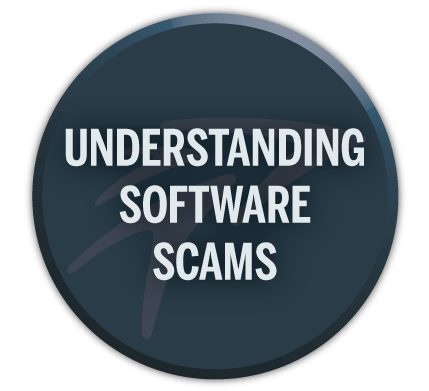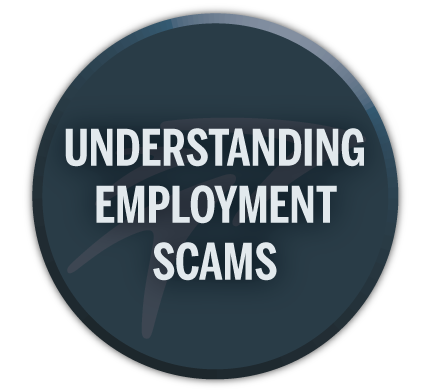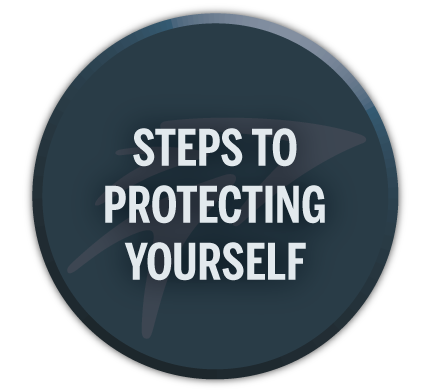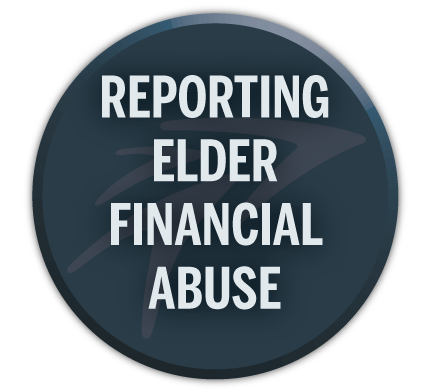Fraud Prevention
What were you looking to learn more about today?
Software or technical support scams make you think that your computer has a serious problem with it, such as a virus. After you're convinced, the scammers entice you to pay for technical support services that you don't need.
Typically, scammers will have you wire money, purchase a gift card then give them the gift card information, or use a money transfer app (Venmo, PayPal, Zelle, etc.).
Be on the lookout for these types of tactics:
- Phone calls: scammers may call and pretend to be a technician from a credible company. If you aren't expecting a call like this then hang up immediately.
- Pop-up warnings: scammers place a pop-up window on computer screens which looks like an error message. It may even use logos from trusted companies. Do not call the number that the window provides... real security warnings will never ask you to call.
- Online ads or listings: scammers place their fraudulent websites in online search results or may even have an ad pop up on a website. Do not call the phone number that is provided. Only call companies that you know and trust.
KEY TAKEAWAYS
- Legitimate companies will not contact you whatsoever informing you of a problem on your computer.
- Legitimate companies will never ask you to call a phone number via pop-up windows.
Read more about software scams by visiting the FTC website. If you believe you are a victim of fraud, visit this page immediately to know everything you need to do »
Understanding Employment Scams
Employment scams occur when individuals are looking for honest work. Scammers either lie about being a job placement service in exchange for money or go as far to hire victims (who believe the job is legimiate) to become "money mules".
For job placement scams, criminals promise the victim a "job" in exchange for money before the victim is offered that "job". For hiring scams, the victim believes they work for a legimiate online company but are actually used to illegally transfer funds to the criminals.
There are clear signs when someone is involved in this scam:
- They're making you pay them in order to get the job. Honest employers will not ask you to pay them for a job.
- They're requesting your credit card or bank information beforehand. Don't ever share your credit card or bank account number over the phone unless you're familiar with them.
- The job they're promising is for "previously undisclosed" federal government jobs. Information about federal jobs is free and announced to the public.
Most job placement services are legitimate, but here are a few reliable sources to use:
- CareerOneStop
- State/county offices
- College career offices
- Public library
Read more about employment scams by visiting the FTC website. If you believe you are a victim of fraud, visit this page immediately to know everything you need to do »
Thieves are sadly targeting the elderly more than any other age demographic with fraudulent activity. It's our job to help you know when to spot scams. Click on one of the helpful modules below to know more about elder scams:
If you believe you are a victim of fraud, visit this page immediately to know everything you need to do »
Your Credit Union has safeguards in place to ensure the security of your information. Yet, there are several steps you can follow to protect yourself:
- Know your account/card numbers & passwords. The less you have on paper, the better.
- Guard your social security number. Do not put it on your checks or in your wallet.
- Be alert when providing personal information. If a company calls you asking for personal information, a good practice is to call them back before giving any info. Call them back on a phone number you know to be accurate.
- Try not to use your mailbox for outgoing mail. Thieves raid mailboxes to steal information.
- Destroy all personal identifying documents before throwing them away.
- Pay attention to billing cycles. If your statements do not arrive on time, contact those companies.
- Keep your contact information updated with the Credit Union. It's important we're able to reach you.
- Review your credit report often. Free copies are available once per year through the Annual Credit Report site.
If you believe you are a victim of fraud, visit this page immediately to know what actions to take »

 Online Access Login
Online Access Login Apply for Loan
Apply for Loan
 Open an Account
Open an Account Make A Payment
Make A Payment

 AD&D Insurance
AD&D Insurance






 HowDoYouCU? Follow our blog!
HowDoYouCU? Follow our blog!













